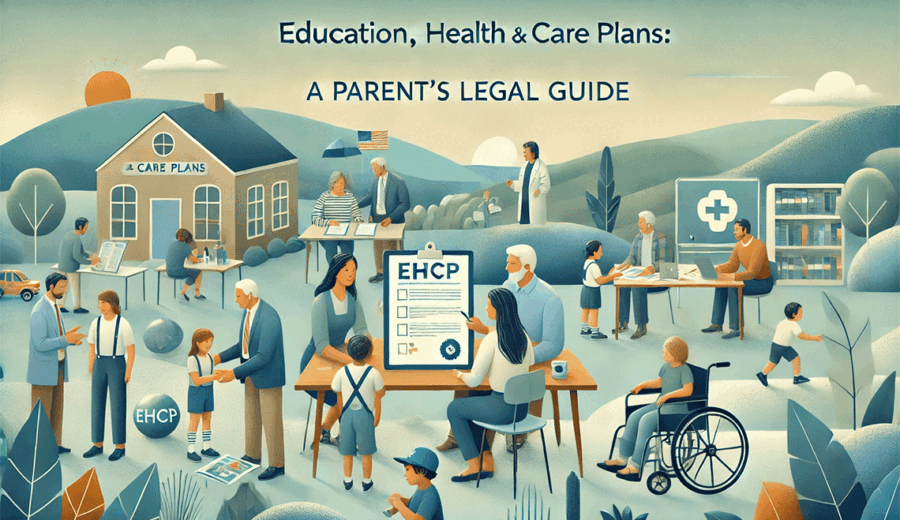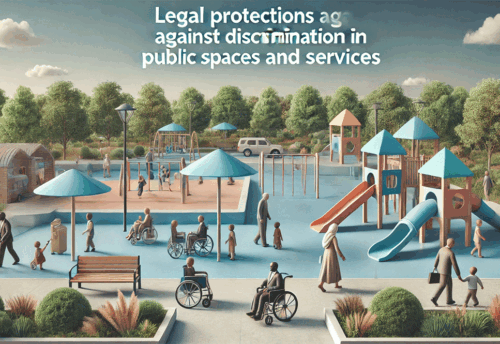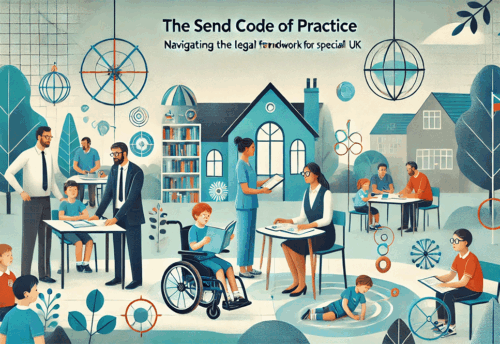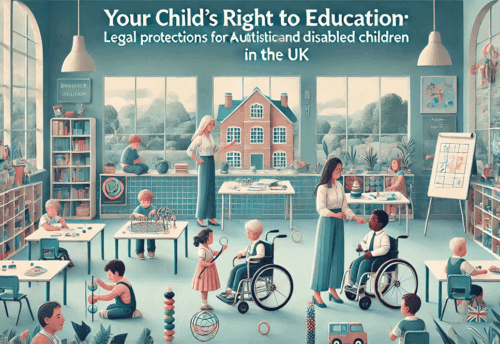
Education, Health and Care Plans
Education, Health, and Care Plans (EHCPs): A Parent’s Legal Guide
The Education, Health, and Care Plan (EHCP) is a legally binding document designed to meet the specific needs of children and young people aged 0-25 with Special Educational Needs and Disabilities (SEND) in the UK. Introduced under the Children and Families Act 2014, EHCPs ensure a coordinated approach to providing education, healthcare, and social support for children with disabilities, including autism.
This guide provides an in-depth look at the EHCP process, your rights as a parent, and how to ensure your child receives the support they need.
What is an EHCP?
An EHCP is a personalized plan that:
- Identifies a child’s special educational needs.
- Outlines the support required to meet those needs.
- Specifies the outcomes the plan aims to achieve in education, health, and social care.
Unlike standard SEND support, which is available to all children with additional needs, an EHCP is for children whose needs cannot be met through regular school resources.
Who is Eligible for an EHCP?
Children and young people aged 0-25 may qualify for an EHCP if:
- They have significant learning difficulties or disabilities compared to their peers.
- They require additional support beyond what is typically provided in mainstream education settings.
Common eligibility criteria include:
- Autism Spectrum Disorder (ASD).
- Speech and language delays.
- Learning disabilities.
- Physical disabilities or sensory impairments.
The EHCP Process
1. Requesting an Assessment
- Who Can Request? Parents, schools, nurseries, or healthcare professionals can request an EHCP assessment.
- How to Apply? Contact your local authority (LA) and submit a formal request for an assessment.
- Timeline: The local authority must decide within six weeks whether to conduct the assessment.
2. The Needs Assessment
The local authority will:
- Gather evidence from parents, teachers, healthcare professionals, and social workers.
- Consider the child’s educational progress and challenges.
- Evaluate whether the child requires additional support.
3. Drafting the EHCP
If the assessment confirms that an EHCP is needed:
- A draft plan will be created in consultation with parents and professionals.
- Parents can review and suggest changes before the plan is finalized.
4. Finalizing the EHCP
- The local authority must issue a final EHCP within 20 weeks of the initial request.
- It becomes a legally binding document requiring schools and services to deliver the specified support.
What Does an EHCP Include?
An EHCP is a comprehensive document divided into sections:
- Personal Information: Details about the child and family.
- Educational Needs: A detailed description of the child’s learning difficulties.
- Health Needs: Any medical or therapeutic requirements.
- Social Care Needs: Support needed at home or in the community.
- Outcomes: The goals the child should achieve with the support.
- Provision: Specific resources and interventions, including who is responsible for providing them.
- Placement: The educational setting that will deliver the plan (e.g., mainstream school, special school, or college).
Rights and Protections for Parents
1. Active Participation
Parents are entitled to be fully involved in every step of the EHCP process, from assessments to reviews.
2. Right to Appeal
If the local authority:
- Refuses to conduct an assessment.
- Declines to issue an EHCP.
- Issues a plan that does not meet the child’s needs.
Parents can appeal to the First-tier Tribunal (SEND Tribunal) for resolution.
3. Annual Reviews
EHCPs must be reviewed annually to ensure they remain relevant to the child’s needs. Parents can request changes or additional support during this review.
Choosing the Right Educational Setting
Parents can express a preference for:
- Mainstream Schools: With additional support for inclusion.
- Special Schools: Tailored for specific disabilities.
- Home Education: Supported by the local authority, if preferred.
The local authority must consider parental preference unless the requested setting is unsuitable or too costly.
How to Ensure Your Child’s EHCP is Effective
- Be Thorough in the Assessment Phase: Provide detailed input about your child’s needs and challenges.
- Collaborate with Professionals: Work closely with teachers, therapists, and social workers.
- Monitor Implementation: Ensure the school delivers the support specified in the plan.
- Seek Expert Advice: Charities like IPSEA and Contact offer guidance on navigating the EHCP process.
Challenges Parents May Face
- Delays in Assessment or Issuing Plans: Authorities may exceed legal timelines.
- Insufficient Support in Plans: Some EHCPs may not fully address a child’s needs.
- Disputes Over Placement: Parents may disagree with the local authority’s chosen school.
Solution: Parents can use mediation services or appeal to the SEND Tribunal.
Support Services for Parents
- IPSEA (Independent Provider of Special Education Advice): Offers legal advice and EHCP support.
- National Autistic Society: Provides resources for parents of autistic children.
- Local SENDIASS: Local authority services offering free advice to parents.
- Advocacy Groups: Help with appeals and mediation.





Leave a Reply